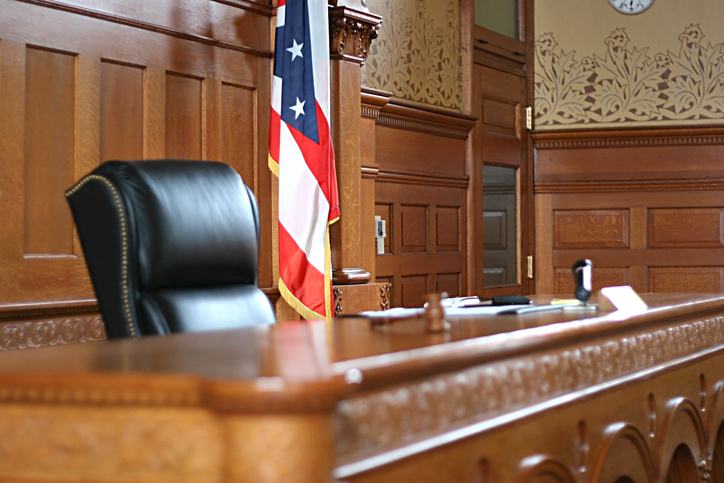Whistleblowing in Healthcare: Types & Frauds
Whistleblowers are critical in exposing fraudulent healthcare schemes that take advantage of patients and the Medicare system. Those with information about such frauds may be eligible for awards and protections under the False Claims Act qui tam provision. Continue reading to learn more!
May 14, 2025

This information is provided for educational purposes only by Kohn, Kohn & Colapinto and does not constitute legal advice. No attorney-client relationship is created by accessing this content. Laws and regulations may change, and this material may not reflect the most current legal developments. If you believe you have a whistleblower claim, consult a qualified attorney to discuss your specific circumstances.
Healthcare fraud is when fraudsters deliberately deceive the healthcare system for financial gain, especially when government funds are involved. Fraudsters can include medical providers, pharmacies, patients and more. The most common form of fraud involves Medicare, where fraudsters engage in false billing, kickbacks, or self-referrals to make a profit of taxpayer dollars.
Healthcare fraud threatens millions of dollars of healthcare resources and the integrity of the healthcare industry. Whistleblowers can prevent such harm by filing qui tam lawsuits under the False Claims Act when they witness fraud. This FAQ provides a list of types of fraud that qui tam whistleblowers have identified and used to file for rewards and protect our healthcare industry. Continue reading to learn more!
Types of Healthcare Frauds
There are many types of frauds that occur in healthcare. Many of them take advantage of Medicare, which the government spent over $832 billion on in 2023. This is a staggering number! And it goes without saying, this makes Medicare ripe for fraud. Below are some examples of fraud that occurs in the healthcare system:
Medicare Fraud
Risk-Adjustment Fraud
CPT codes are used by the government to determine how much to pay the provider based on the complexity or severity of the service, with more complex services often corresponding to higher reimbursement. Risk-adjustment fraud or “upcoding” is a type of medical billing fraud where medical providers submit fraudulent CPT codes for services that were not performed or were performed unnecessarily. By billing for higher risk procedures, providers can often falsely charge higher reimbursements.
Unbundling
Unbundling is another type of fraud that purposefully manipulates patient data in order to collect greater payments from healthcare programs such as Medicare and Medicaid. Unbundling or “fragmentation” is when medical providers separate the “bundle” of elements of a procedure and charge the CPT codes for each step rather than the bundled CPT codes, fraudulently charging more money for the same service.
Kickbacks
Kickbacks are secret payments or benefits given in exchange for improper influence, including bribes paid to public and foreign officials, gifts sent to certain parties that interfere with unbiased business decisions, and more. For example, kickbacks may be paid to incentivize physicians to prescribe a certain pharmaceutical company’s drug over competitors.
Anti-Kickback Statute Violations
The Anti-Kickback Statute (AKS) is a provision of the False Claims Act intended to eliminate corruption in healthcare by prohibiting the exchange of financial incentives for patient referrals or service recommendations.
Stark Law violations
Stark Law or Physician Self-Referral Law prohibits doctors from referring Medicare or Medicaid patients receive Designated Health Services (DHS) at certain facilities if the doctor has a financial connection to that facility, such as ownership, investment, or any compensation agreement. The Stark Law is meant to ensure that referrals are done in the interest of the patient, not the physician.
Medical device fraud
Medical device fraud involves illegal methods in the production, marketing, and sales of medical devices through kickbacks to doctors, off-label marketing, selling defective devices and more. Healthcare providers can also violate the False Claims Act engaging in medical device fraud by billing the government for devices not approved by the FDA.
Medicaid Fraud
Similar to Medicare, Medicaid fraud is committed by healthcare providers such as pharmaceutical companies, physicians, or hospitals who engage in fraudulent billing schemes of Medicaid. Medicare and Medicaid fraud is often involved when providers attempt to take advantage elderly beneficiaries.
Unlawful prescription practices
Off-Label Drug Marketing
Off-Label Drug Marketing is the illegal advertisement of drugs or medical devices for uses not approved by the FDA. Off-label drug promotion can also be involved in kickbacks to sales representatives or physicians to prescribe drugs for off-label use or promote them with misleading information. This type of fraud greatly undermines the ability of the FDA to regulate the safety and use of drugs in healthcare.
Drug Diversion
Drug diversion is the use of prescription drugs for any other use intended by the prescriber, including illegal distribution or abuse of drugs by physicians, pharmacies, or manufacturers.
Fraudulent Clinical Research
Research Fraud
Clinical research fraud occurs when researchers illegally misconstrue or falsely report data to the FDA for approval or to the government in order to obtain grants. Research fraud can include falsified clinical trial data, false statements to the FDA, omission of relevant data in applications for FDA approval, or otherwise misrepresent the safety or efficacy of drugs in clinical trials.
Examples of Whistleblowing Cases in Healthcare
Bristol-Myers Squibb (BMS) ($515 million)
Bristol-Myers Squibb (BMS) settled for $515 million to resolve allegations of off-label marketing and paying kickbacks to doctors to induce the submission of false claims to Medicare and Medicaid. The whistleblowers bringing forward the qui tam lawsuit were awarded $50 million in rewards.
Modernizing Medicine Inc. ($45 million)
A whistleblower lawsuit found Modernizing Medicine Inc. (ModMed) in violation of the Anti-Kickback Statute of the False Claims Act, leading to a settlement of $45 million. The company was alleged to accept and provide illegal remuneration in exchange for referrals and lead its users to misreport claims for federal incentive payments. The whistleblower Amanda Long, a former Vice President of Product Management at ModMed, received approximately $9 million in awards under the qui tam provisions of the FCA.
BioTelemetry Inc. ($45 million)
BioTelemetry Inc. agreed to pay $44,875,000 to address allegations of violating the False Claims Act by knowingly submitting claims to Medicare and other government programs for heart monitoring tests that were performed outside the United States in violation of federal law. The whistleblowers who filed False Claims Act qui tam lawsuits were awarded approximately $8.3 million for aiding the government in combating fraudulent healthcare billing.
Halifax Hospital Medical Center ($500 million)
Halifax Hospital Medical Center and Halifax Staffing Inc. (Halifax) were alleged to knowingly violate the Stark Law by executing contracts with physicians that billed Medicare for an incentive bonus that improperly included the value of prescription drugs and tests. The government recovered over $500 million, with whistleblowers receiving $20.8 million of the settlement.
Why is Whistleblowing in Healthcare Important?
Every year, healthcare fraudsters abuse government programs for personal gain, siphoning millions of U.S. tax dollars. According to the Department of Justice, of the more than $2.68 billion in False Claims Act settlements and judgments in the 2023 fiscal year, over $1.8 billion involved the healthcare industry.
Some schemes, such as off-label drug marketing, are downright sinister, as people may be prescribed medication they don’t need, which can lead to other serious harms.
Qui tam whistleblowers are the most powerful tool for combatting medical fraud assisting the government to recover taxpayer money. Rewarding accountability ensures healthcare and drug providers make decisions based on the interest of patients and strengthen the integrity of our healthcare system.
Are You a Healthcare Whistleblower?
Are you aware of fraudulent activity in the healthcare industry? If you have information about a scheme involving upcoding, kickbacks, Stark Law violations, or other illegal practices within the healthcare setting, don’t hesitate to contact our firm.
At Kohn, Kohn & Colapinto, we are committed to protecting the integrity of the healthcare system. Our experienced attorneys will provide you with confidential guidance and represent your interests as a strong ally. Get in touch today for a free consultation.
Our Firm’s Cases

Contract Fraud Exposed
Dr. Tommie Savage, a seasoned contracting officer at the Army Corps of Engineers, uncovered a web of systemic corruption within the agency's Huntsville, Alabama contracting office. Her unwavering commitment to ethical government practices led to a relentless campaign of retaliation that would test her resilience and courage.

Qui Tam Victory
Whistleblower Bryan Swanton's qui tam lawsuit led to a $625,000 settlement against Instec Inc. for falsely claiming its Chinese-made scientific instruments were manufactured in the U.S. to secure government contracts.

Lives Saved
Dr. Aaron Westrick filed a False Claims Act lawsuit against Toyoba, the manufacter of Zylon fiber, a material that degraded over time, which put thousands of lives in American police departments, federal law enforcement agencies, and the U.S. military at risk.





